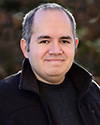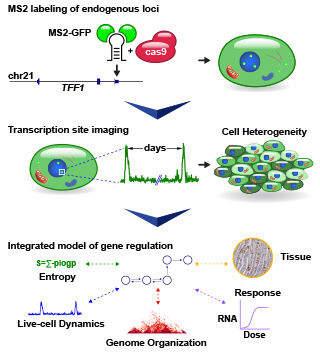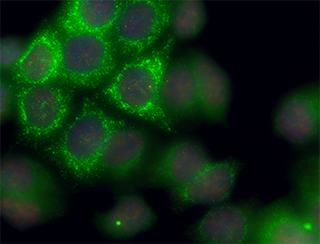Gene Expression Heterogeneity

Research Summary

Joseph Rodriguez, Ph.D., leads the Single Cell Dynamics Group and holds a secondary appointment in the NIEHS Molecular and Cellular Biology Laboratory. The Single Cell Dynamics Group studies how the environment influences expression variability at the single cell level and subsequently how this variability influences cell fate decisions.
The group’s understanding of gene regulation is mostly based on studies that assay whole tissues and bulk cell lysates. Single Cell Dynamics Group is interested in understanding why genetically identical cells respond heterogenous to environmental stimuli. Recent research suggests that in diseases, such as cancer or the process of aging, expression variability increases in tissue. Determining the factors and mechanisms that regulate this variability will help us understand the differences between normal and diseased states.
Major areas of research:
- Defining the mechanisms of expression heterogeneity
- Determining how cell fate decisions are regulated in single cells

Rodriguez graduated from MIT in 2001 and worked for six years performing bioinformatics analysis of human genome assembly. In 2007, he began work under the direction of Nobel Laureate Michael Rosbash, Ph.D., at Brandeis University, studying RNA processing and circadian gene expression dynamics. Those efforts led to shared authorship on eleven publications, including first author papers in Molecular Cell and the Proceedings of the National Academy of Sciences. After receiving his doctorate in 2012, Rodriguez joined the laboratory of Daniel Larson, Ph.D., at the National Cancer Institute and studied transcriptional regulation of estrogen responsive genes in single human cells. He joined NIEHS in 2018.


